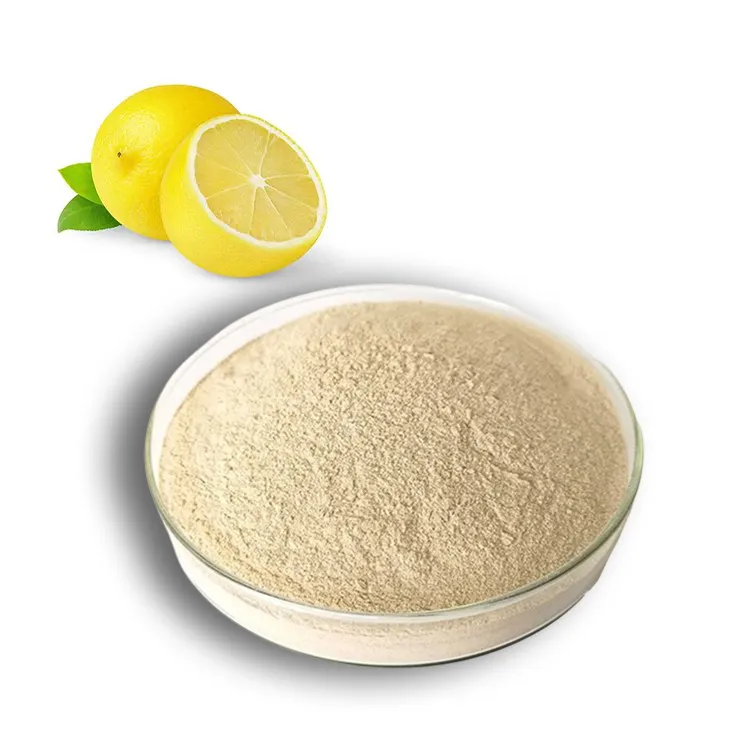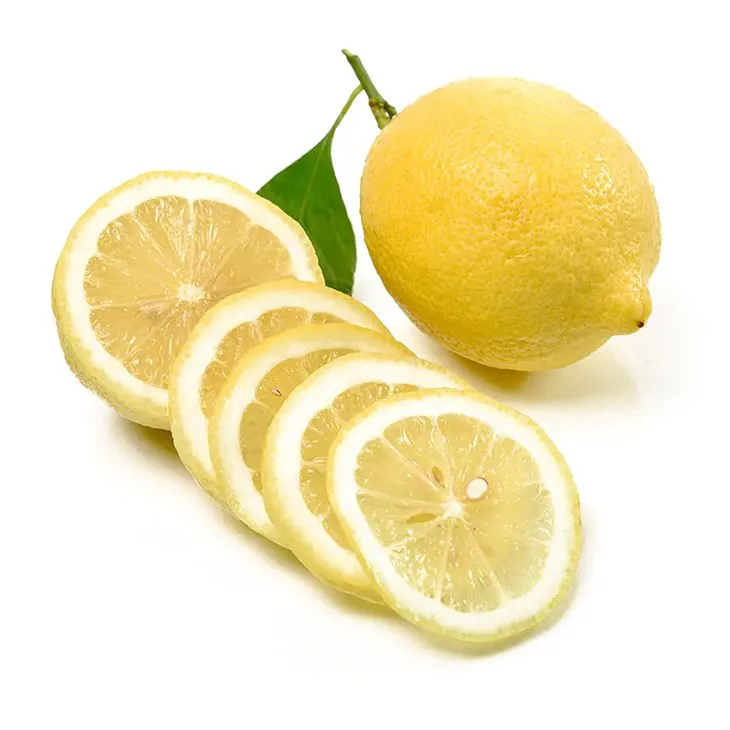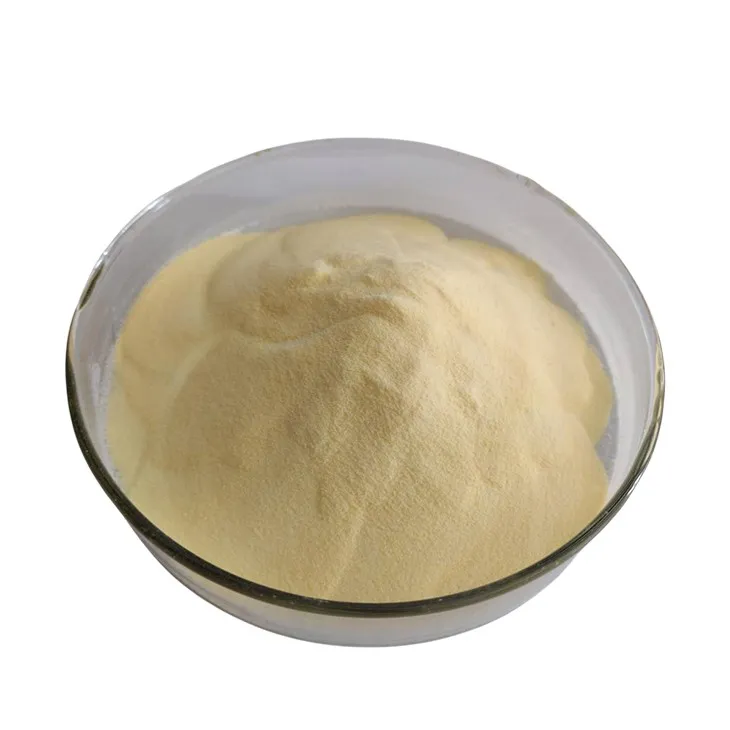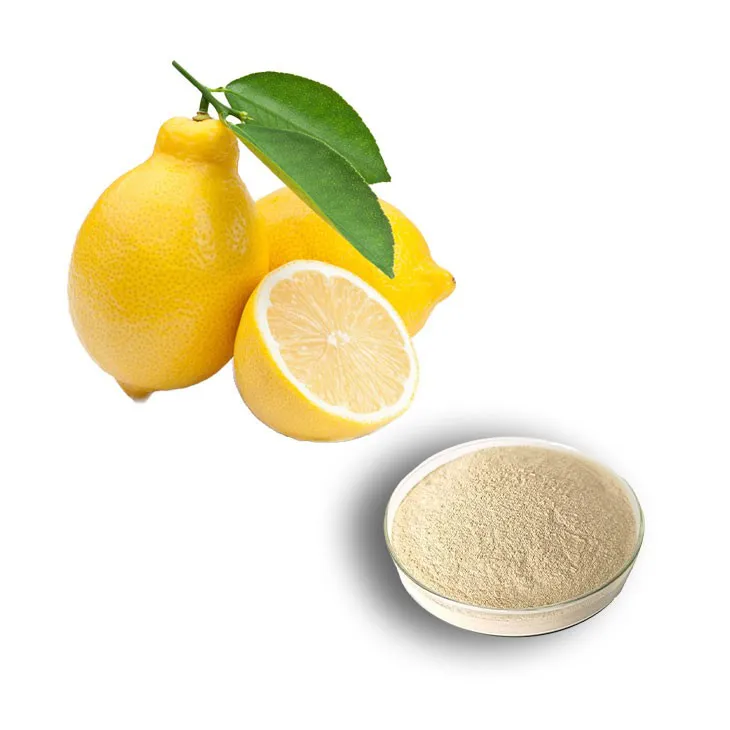- 0086-571-85302990
- sales@greenskybio.com
A Guide to Understanding the Proportion of Lemon Extract Powder.
2024-12-14

1. Introduction
Lemon Extract powder has become a popular ingredient in various industries, including food, beverage, and cosmetics. However, understanding its proportion is crucial for different applications. Proportion in this context refers to the amount or ratio of Lemon Extract powder used in relation to other ingredients or in a particular product formulation. This guide aims to provide a comprehensive understanding of the proportion of Lemon Extract powder.

2. Production and Proportion
2.1 Raw Material Selection
The proportion of lemon extract powder in production starts with the selection of raw materials. High - quality lemons are essential for obtaining a good - quality extract powder. The ripeness of the lemons, their variety, and the source all influence the proportion of the final extract powder. For example, if the lemons are overly ripe, they may contain a higher proportion of sugars, which can affect the overall composition of the extract powder. Varieties such as Eureka or Lisbon lemons may have different chemical compositions, thus leading to variations in the proportion of active ingredients in the extract powder.
2.2 Extraction Process
The extraction process also plays a significant role in determining the proportion of lemon extract powder. There are different extraction methods, such as solvent extraction and cold - press extraction. Solvent extraction may use ethanol or other solvents to extract the desired compounds from the lemons. In this process, the proportion of solvent to lemon material affects the concentration of the extract. If too much solvent is used, the resulting extract powder may have a lower proportion of the actual lemon - derived compounds. On the other hand, cold - press extraction generally yields a purer extract with a different proportion of components compared to solvent extraction.
2.3 Concentration and Drying
After extraction, the liquid extract needs to be concentrated and dried to obtain the powder form. The degree of concentration determines the proportion of the active ingredients in the final powder. If the concentration process is not carried out properly, the proportion of essential oils, flavonoids, and other beneficial compounds in the lemon extract powder may be sub - optimal. Drying methods, such as spray drying or freeze - drying, also impact the proportion. Spray drying may cause some loss of volatile compounds, while freeze - drying can better preserve the integrity of the components, but it is more costly. This cost factor may also influence the proportion in commercial production, as manufacturers need to balance quality and cost.

3. Usage and Proportion
3.1 Food Industry
In the food industry, lemon extract powder is used for its flavor and aroma. In baking, for instance, a small proportion of lemon extract powder can add a refreshing lemon flavor to cakes, cookies, and pastries. The proportion typically ranges from 0.1% to 1% of the total dry ingredients. For making lemon - flavored beverages, the proportion may be higher, around 1% - 3% depending on the desired intensity of the lemon flavor. In jams and preserves, lemon extract powder can be added at a proportion of about 0.5% - 1.5% to enhance the flavor and act as a natural preservative.
When used in salad dressings, a proportion of around 0.2% - 0.8% of lemon extract powder can provide a tangy flavor. It is important to note that the proportion should be adjusted according to the overall recipe and the taste preferences of the consumers. For example, in a more delicate - flavored dish, a lower proportion may be sufficient, while in a bolder - flavored product, a higher proportion can be used.
3.2 Beverage Industry
The beverage industry widely uses lemon extract powder in both hot and cold drinks. In tea and coffee products, a proportion of about 0.5% - 1.5% of lemon extract powder can add a pleasant lemon twist. In fruit - based drinks, the proportion can vary from 1% - 5% depending on whether the drink is primarily lemon - flavored or just has a hint of lemon. For energy drinks, lemon extract powder may be added at a proportion of around 0.8% - 2% to provide a refreshing and tangy flavor. Manufacturers also need to consider the interaction between lemon extract powder and other ingredients, such as sweeteners and preservatives, when determining the proportion. For example, a higher proportion of sweetener may require a higher proportion of lemon extract powder to balance the flavor.
3.3 Cosmetics Industry
Lemon extract powder is used in cosmetics for its skin - beneficial properties. In skin creams and lotions, it is typically added at a proportion of 0.5% - 2% of the total formulation. This proportion is sufficient to provide antioxidant and antibacterial benefits without causing skin irritation. In hair care products, such as shampoos and conditioners, lemon extract powder can be added at a proportion of about 0.3% - 1% to add shine and freshness to the hair. However, in products for sensitive skin or hair, the proportion may need to be adjusted downward to avoid any potential adverse reactions.

4. Safety and Proportion
4.1 Regulatory Aspects
Regulatory bodies around the world have set guidelines regarding the proportion of lemon extract powder in different products. In the food industry, these regulations ensure that the proportion of lemon extract powder used is safe for consumption. For example, in the United States, the Food and Drug Administration (FDA) has specific regulations on the use of food additives, including lemon extract powder. The proportion must be within the limits that are considered safe for human ingestion. In the cosmetics industry, regulatory agencies like the European Commission's Cosmetics Regulation also set limits on the proportion of ingredients, taking into account potential skin sensitization and other safety concerns.
Manufacturers are required to comply with these regulations, and proper labeling is essential to inform consumers about the proportion of lemon extract powder in the product. Failure to comply with these regulations can result in legal consequences, including product recalls and fines.
4.2 Allergic Reactions and Proportion
Although lemon extract powder is generally considered safe, some individuals may be allergic to it. The proportion of lemon extract powder in a product can affect the likelihood of an allergic reaction. A higher proportion may increase the risk for those with sensitivities. For example, in a highly concentrated lemon - flavored food or cosmetic product, individuals with lemon allergies may experience more severe reactions. Therefore, it is important for manufacturers to clearly label products containing lemon extract powder and indicate the proportion, especially for products that may come into contact with the skin or be ingested.
4.3 Toxicity and Proportion
While lemon extract powder is not toxic in normal usage proportions, excessive use or ingestion of products with a very high proportion of lemon extract powder may pose some risks. High levels of certain compounds in lemon extract powder, such as limonene, may cause gastrointestinal discomfort if consumed in large amounts. In cosmetics, using a proportion of lemon extract powder that is too high may cause skin irritation or photosensitivity in some individuals. Therefore, it is crucial to follow the recommended proportions based on scientific research and regulatory guidelines.

5. Conclusion
Understanding the proportion of lemon extract powder is essential for its successful production, appropriate usage, and ensuring safety. In production, factors such as raw material selection, extraction process, and drying methods all influence the proportion of the final product. In different industries, the proportion varies according to the desired function and the characteristics of the end - product. Moreover, safety considerations, including regulatory compliance and potential allergic reactions, also play a role in determining the appropriate proportion. By carefully considering all these aspects, manufacturers can produce high - quality products with lemon extract powder, and consumers can safely enjoy the benefits of this versatile ingredient.
FAQ:
Q1: What factors influence the proportion of lemon extract powder in production?
The proportion in production can be influenced by several factors. The quality and type of lemons used play a role. For example, different lemon varieties may have different levels of active compounds, which can affect the proportion of the extract powder. Also, the extraction method is crucial. If a more efficient extraction method is used, it may result in a different proportion of the final powder. Additionally, manufacturing standards and intended use of the powder can also impact the proportion during production.
Q2: How does the proportion of lemon extract powder affect its usage?
The proportion of lemon extract powder is directly related to its usage. If the proportion of active ingredients in the powder is higher, it may be used in smaller quantities for a particular application. For instance, in the food industry, a powder with a higher proportion of flavor - related compounds may be used in smaller amounts to achieve the desired taste. In skincare products, the proportion of beneficial substances like vitamins and antioxidants in the lemon extract powder determines how effective it is for treating certain skin conditions, and thus how much should be used in a product formulation.
Q3: Is there a standard proportion for lemon extract powder to ensure safety?
There is no one - size - fits - fits - all standard proportion for ensuring safety. However, regulatory bodies often set limits on certain substances that may be present in lemon extract powder. For example, if there are any potential allergens or contaminants, there are regulations to control their levels. The safety also depends on the intended use. In food products, the proportion should be such that it does not cause any adverse health effects when consumed in normal amounts. In cosmetics, it should not cause skin irritation or other allergic reactions, and this is related to the proportion of various components in the powder.
Q4: How can one measure the proportion of lemon extract powder accurately?
Accurate measurement of the proportion of lemon extract powder can be achieved through various methods. In a laboratory setting, advanced analytical techniques such as chromatography can be used. Chromatography can separate and quantify the different components in the powder, allowing for an accurate determination of the proportion of each. Another method could be spectrophotometry, which measures the absorption of light by the powder at specific wavelengths, providing information about the proportion of certain compounds. In an industrial context, standardized weighing and mixing procedures are often used to ensure the correct proportion of the powder in a product.
Q5: Can the proportion of lemon extract powder be adjusted for different applications?
Yes, the proportion of lemon extract powder can be adjusted for different applications. In the food and beverage industry, if a stronger lemon flavor is desired, the proportion of the extract powder can be increased. In the pharmaceutical or nutraceutical industry, if a higher concentration of a particular bioactive compound in the lemon extract is needed for a specific therapeutic effect, the proportion can be adjusted accordingly. Similarly, in the cosmetic industry, for products targeting different skin types or concerns, the proportion of the lemon extract powder can be modified to optimize its performance.
Related literature
- The Chemistry and Composition of Lemon Extracts: Implications for Proportion Determination"
- "Lemon Extract Powder in Food and Cosmetic Applications: Proportion Considerations"
- "Safety Aspects of Lemon Extract Powder: Role of Proportion in Regulatory Compliance"
- ▶ Hesperidin
- ▶ Citrus Bioflavonoids
- ▶ Plant Extract
- ▶ lycopene
- ▶ Diosmin
- ▶ Grape seed extract
- ▶ Sea buckthorn Juice Powder
- ▶ Fruit Juice Powder
- ▶ Hops Extract
- ▶ Artichoke Extract
- ▶ Mushroom extract
- ▶ Astaxanthin
- ▶ Green Tea Extract
- ▶ Curcumin
- ▶ Horse Chestnut Extract
- ▶ Other Product
- ▶ Boswellia Serrata Extract
- ▶ Resveratrol
- ▶ Marigold Extract
- ▶ Grape Leaf Extract
- ▶ New Product
- ▶ Aminolevulinic acid
- ▶ Cranberry Extract
- ▶ Red Yeast Rice
- ▶ Red Wine Extract
-
Tormentil Extract
2024-12-14
-
Black Garlic Extract
2024-12-14
-
Bitter Melon Extract
2024-12-14
-
Aminolevulinic acid
2024-12-14
-
Red Vine Extract
2024-12-14
-
Moringa powder
2024-12-14
-
Eucommia Ulmoides Extract
2024-12-14
-
Kidney Bean Extract
2024-12-14
-
Withania Somnifera Extract
2024-12-14
-
Maca Extract
2024-12-14





















